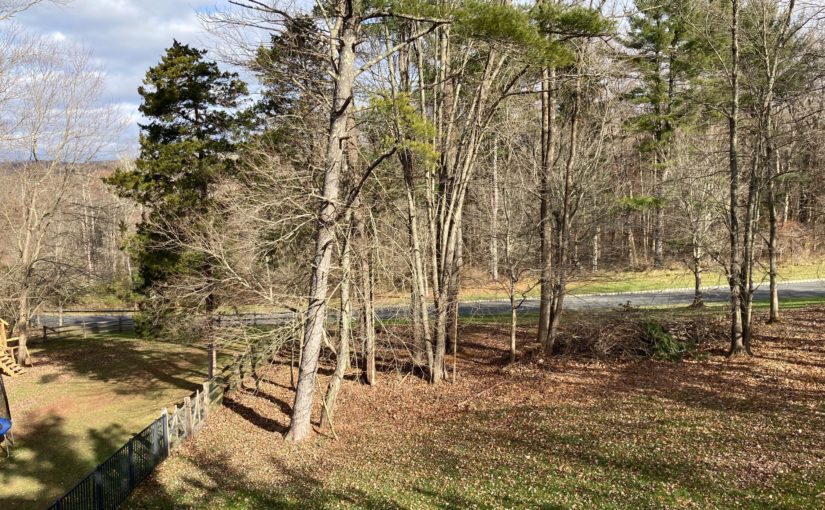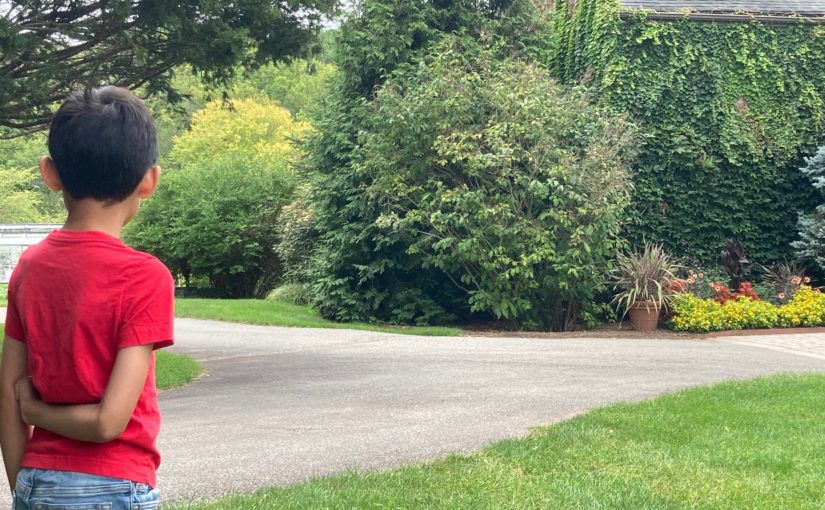Our generation grew up with the memory of war, one close (Spanish civil war) and a distant one ( WWII), both of them terrible. We knew the witnesses of such a tragedy in our grandparents. The promise was that evil had gone so far that we would not forget. The future would always be peaceful and prosperous, that was the promise.
The tragedy of humanity is that we are made to forget. And that blessing is the downfall of our recurring destiny. Mankind reinvents itself every cycle. The Romans, who were as smart as Jung, described Saturn as the God of abundance who, like time, devours his children and starts all over again.
After the first half of the twentieth century, full of war and violence, in the following period of peace the seeds of the violence that we see now were sown. We live in an era of state violence against its citizens whom it considers its subjects if they do not comply with arbitrary mandates, the violence of unelected bureaucracy against citizens exercising their right to free speech, this violence of small groups that simply seek advantages over the rest by claiming past offenses and so many other issues that make silence of the regular citizen the best strategy to get by. It’s funny how the latter ones use the very ecclesial concept of original sin, impossible to erase and transmitted from generation to generation. I wonder where the location of the gene of evil is and how it is only present in very specific lineage of individuals. One of those seminal thoughts that has grown like weeds in summer is due to the Frankfurt School, the critical theory. This school says that thought must respond to new problems and new possibilities for liberation that changing historical circumstances produce. Like all the philosophies of the twentieth century, this current has also abdicated understanding human nature and focuses on what Aristotle would consider accidents, in the smoke of human action and historical circumstances. They never speak of individuality, of the unalterable condition of the human soul. It is not surprising because critical theory was conceived within the philosophical framework of Marxism, there is no freedom in that philosophical thought. Among all its representatives, from Adorno, Fromm, Horkheimer, Benjamin to Habermas after 68, Herbert Marcuse stands out. The basic ideas of critical theory are organized with respect to the two basic and sad concepts of alienation and reification. Alienation is identified with the psychological effects of exploitation and division of labor; while reification has to do with the fact that people are treated as things. According to this school, the authentic experience of individuality and class consciousness is being supplanted by the consumerism of capitalism. In this frame of reference Herbert Marcuse published in 1965 an essay entitled “A critique of Pure Tolerance”. Marcuse argues that the realization of objective tolerance calls for “intolerance towards present policies, attitudes, and opinions”. He identifies tolerance as a weapon of repression. The freedom of the individual stipulates the ability to determine his own life. But he argues that the subject of that freedom is never “the contingent and private individual that one is, but the individual as a human being capable of living in freedom with others.” Taking the argument further he says “a society must be created in which the individual is not enslaved by institutions … freedom has to be created including the freest societies … the direction in which that freedom must be sought, and changes Institutional and cultural institutions that can help achieve this objective are understandable, that is, they can be identified based on human experience and reason ”. In some ways that path towards freedom is common sense, and there is only one according to this argument. Later he argues that “Tolerance cannot be indiscriminate and equal with respect to the contents of expression, it cannot protect false words or incorrect objectives that prove to be an obstacle to liberation.” Regarding how this is achieved, the following is prescribed: “the restoration of freedom of thought may need new and rigid restrictions in educational practices and educational institutions.” He adds that “this change in the educational system should be produced by students and teachers … a systematic withdrawal of tolerance towards regressive and repressive ideas.” He goes on to say, within the framework of Marxist philosophy, that “the real possibilities of human freedom are relative to the state of each civilization. They depend on the material and intellectual resources available in each era, and they are quantifiable up to a certain point ”. Near the end of his essay he says “… liberating tolerance would mean intolerance against conservative movements and tolerance of left movements”, and he goes on to justify violence “if they use violence, they do not start a new cycle of violence, but rather try and break an already established one ”. After this series of arguments he reaches the final conclusion “is there an alternative beyond the dictatorship of an elite over the people? For the opinion of the people that is not free… cannot carry validity or authority, even when the people constitute the majority ”.
In this essay you can see many of the events that we see today in Western democracies and their implosion at speeds never imagined. The “progressive” ideas, which are actually regressive because they advocate a dictatorship of the elite, which ignores individuality and promises an improvement of the human condition as an ideal goal that is always beyond reach, call for:
1- Educational reform where obviously parents have nothing to say. This has been used by progressives from the 1960s. It can be seen in these new generations that are more intolerant and violent than past ones. It can be seen in the use that racist minorities in Catalonia and the Basque region have made of it in Spain to instill hatred and intolerance in these new cohorts of “Street fighters” and other human subspecies, many of them visiting the Bilbao stadium every other Sunday with a cardigan jacket and a horse in the left nipple. In the USA this can be seen in the imposition of “critical race theory” and this generation of “millennials” who adore photos and mediocrity with similar intensity while putting on masks and as many vaccines as authorities mandate with no personal thought process.
2- Segregation and discrimination of ideas that do not agree with this “religion of progress”, oh how deplorable that is. There is no longer any discussion, those who do not agree with this “progress” are a problem, an obstacle in human development. Anything opposed to human progress is inherently immoral. Immorality must be destroyed, here comes the use of violence blessed by Marcuse.
3- Redefinition of words and concepts. Marcuse complains that “the meaning of words is rigidly established.” The use of new words, the reformulation of concepts leads to confusion and the creation of a new lexicon in which only the bearers of the new truth are versed.
4- Not everyone is capable of having that vision to exercise true freedom. There is an elite that must guide the rest of the amorphous mass, incapable of recognizing true freedom. We must bend to that visionary class that will take us to that wonderful Arcadia.
It is important to understand the historical moment in which we are, we must accept that the levels of freedom acquired in the past have receded and it is necessary to regain freedom for the individual. We must reduce the size of the government and return to the individual areas of decision, from education, to health, to politics. We must reduce the flow of money that the state handles and provides to that political caste with its group of advisers who actually live from the state. Because all that superstructure has created an omniscient state that makes decisions for citizens and begins to justify discrimination against those who make their own decisions. You have to go back to the individual. Europe traded freedom for peace decades ago and that explains its dissolution as a cultural and economic leader on the world stage. Hayek’s hypothesis that economic freedom leads to political freedom is being challenged on the surface by China, as of now an example of a dictatorship with relative economic freedom. There is nothing left but to return to the principles of individuality and to tolerate the state as a social tool that allows each one of us to pursue our own happiness. Let us bury Marcuse in the oblivion of darkness
References
A critique of pure tolerance by Herbert Marcuse (1965)
https://www.marcuse.org/herbert/publications/1960s/1965-repressive-tolerance-1969.pdf
Critical theory by Stephen Eric Bronner (2011)
Dialectic of enlightenment by Horkheimer and Adorno (1944)
Road to Serfdom by F Hayek (1944)
The Content of our character by Shelby Steele (1991)

